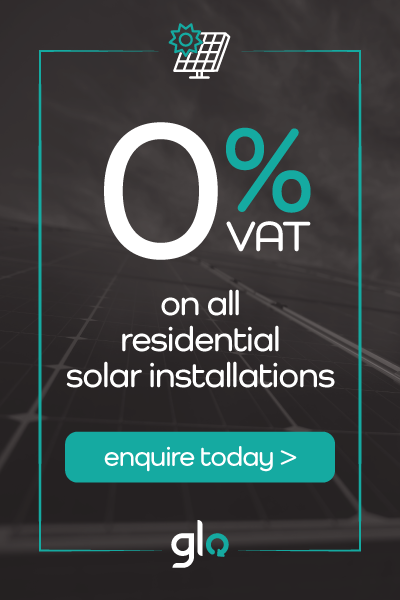The transition towards electric mobility is gaining momentum in Devon and across the United Kingdom, with the adoption of Electric Vehicles (EVs) on an unprecedented scale. Central to this transformation is the development and expansion of EV charging infrastructure.
This article explores the changing landscape of EV charging in Devon and across the UK, its impact on the transportation ecosystem, and the challenges and opportunities it presents.
The EV Revolution
The UK has made considerable strides in promoting the shift to electric vehicles to curb carbon emissions and tackle climate change. The government’s ambitious plan to ban the sale of new petrol and diesel cars by 2030 has spurred a significant increase in the adoption of EVs.
The EV market in the UK has seen a staggering growth rate of 42% yearly, with millions of drivers switching to electric mobility.
Impact on the Transportation Ecosystem
The UK is on the verge of significantly changing how people travel as EVs replace petrol and diesel vehicles. This will bring many benefits to the country, such as cleaner air, more jobs in green energy, and less reliance on oil. It will also change how people use and consume energy as EVs become part of a more intelligent, more sustainable transport network.
A Paradigm Shift in Infrastructure
The rise in EV adoption necessitates a corresponding increase in EV charging infrastructure. The UK government has recognised this need and has pledged to invest heavily in developing charging infrastructure. This includes plans to increase the number of public EV charging points to 300,000 by 2030.

The EV Charging Landscape in Devon and across the UK
The growing demand for EVs has led to a surge in EV charging points in the UK. These include public and private charging stations, offering various charging options to cater to different user needs.
Public Charging Networks
Public EV charging networks are crucial in facilitating long-distance travel and serving EV drivers without access to home charging facilities. New laws have been introduced to standardise pricing information and payment methods across setting points to ensure transparency and ease of usage.
Moreover, charging point operators are required to share data about the availability and functionality of their charging points, allowing drivers to locate and compare charging options more easily.
Home Charging Solutions – Electric Vehicle Charging in Devon
If you have a driveway or a garage, you can charge your EV at home quickly and affordably. With the latest EV models, you can drive more than 200 miles on a full battery, which means you can meet your daily travel needs with home charging. You can also get financial assistance from the UK government to install a home charging point.
Challenges and Opportunities
While expanding EV charging infrastructure is a positive step towards green mobility, it also presents several challenges that must be addressed.

Infrastructure Development
The development of charging infrastructure needs to keep pace with the increasing number of EVs on the road. This requires substantial investment and strategic planning to ensure the availability and accessibility of charging points. Moreover, connecting charging points to the grid must be streamlined to facilitate rapid installation and operation.
Battery Technology
EVs’ performance and reliability largely depend on their batteries’ quality. Current research focuses on improving energy density and reducing degradation to increase the range and lifespan of EV batteries. Furthermore, innovations in wireless charging technology offer promising solutions for high-use vehicles such as taxis and delivery vehicles.
Policy Support
Government policies play a pivotal role in driving the transition to electric mobility. In addition to funding infrastructure development, policy measures are needed to incentivise EV adoption and promote using renewable energy sources for charging. This includes setting targets for EV sales, offering tax incentives and grants for EV buyers, and implementing regulations to ensure the quality and reliability of charging services.
Looking Ahead
The future of EV charging in Devon and the UK looks promising, with technological advancements, policy support, and increasing consumer demand driving progress. However, the journey towards a fully electrified transportation system is still fraught with challenges.
Solving these will require a concerted effort from government, industry, and consumers. Nonetheless, the potential benefits of EV adoption — from environmental conservation to economic growth — make the journey well worth the effort.
The EV charging revolution is more than just swapping petrol pumps for charging stations. It means a radical change in how we view and use transport and energy. By adopting this change, Devon and across the UK can be at the forefront of the global movement towards a greener and cleaner future.
If you want to join the EV charging revolution, Glo Renewables can help you with anything you need. We have the best solutions for you if you want a home charger. We also offer consultancy, installation, maintenance, and support services to ensure your EV charging experience is smooth and hassle-free. Contact us today, and let us help you switch to a greener and more innovative way of driving.
Frequently Asked Questions About EV Charging
1. What is the fastest way to charge an EV?
The quickest way to charge an EV battery is by using a high-power or Level 3 charger, also known as a DC fast charger. These chargers can deliver up to 350 kW of power and boost an EV battery from 10% to 80% in as little as 20 minutes to 1 hour, depending on the battery capacity and level of depletion. Some EVs, such as the Porsche Taycan Plus, the Kia EV6 Long Range 2WD, and the Lucid Air, have high-voltage battery systems of 800V or 900V that can handle even faster charging speeds and achieve up to 90% charge in 10 minutes or less.
2. What are the different types of EV charging?
The different types of EV charging are Level 1, Level 2, and DC fast charging. Level 1 charging uses a common residential 120-volt (120V) AC outlet and can provide 2 to 4 miles of range per hour. Level 2 charging uses a 240-volt (240V) AC outlet and can provide 25 miles of range per hour. DC fast charging uses a 480-volt (480V) or higher DC power source, providing up to 650 miles of range per hour.
3. What is the voltage of EV charging?
The voltage of EV charging depends on the type of charger and the battery system of the EV. Level 1 charging uses 120V AC, Level 2 charging uses 240V AC, and DC fast charging uses 480V DC or higher. The battery system of the EV can also vary in voltage, from 200V to 900V, depending on the model and configuration.
4. How many hours to charge EVs?
The number of hours to charge an EV depends on the battery size, the state of charge, the charging speed, and the environmental conditions. A Level 2 charger can take about 8 hours to charge a standard EV with a 60 kWh battery fully.
A DC fast charger can do the job in 20 minutes, going from 10% to 80%. However, these times can vary depending on how much the battery is depleted, how fast the charger can deliver power, and how hot or cold the battery is.
5. Can an EV be charged in 10 minutes?
An EV can be charged in 10 minutes with a high-voltage battery system and a compatible DC fast charger. Some EVs, such as the Porsche Taycan Plus, the Kia EV6 Long Range 2WD, and the Lucid Air, have 800V or 900V battery systems that can accept very high charging rates and achieve up to 90% charge in 10 minutes or less. However, this is only possible for some EVs with lower-voltage battery systems and slower chargers.
6. Do you need to charge your EV every day?
You only need to charge your EV daily if you drive long distances or have a tiny battery. Most EV drivers charge their EVs every 2-3 days or every other day, depending on their driving habits and battery size. Setting your EV daily is not harmful but can be unnecessary and inconvenient. However, some benefits of charging your EV daily are that you can avoid forgetting to trust when you need to, and you can be prepared for any unexpected trips or changes in plans.






